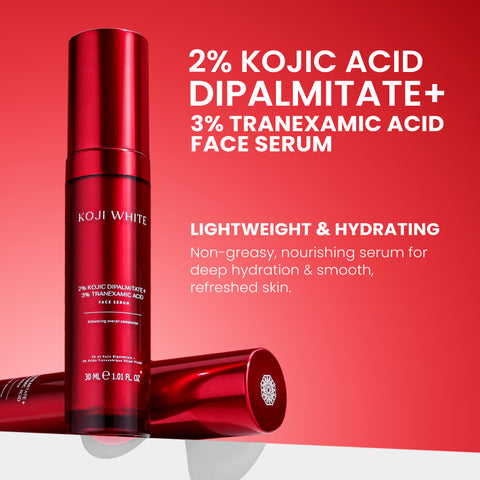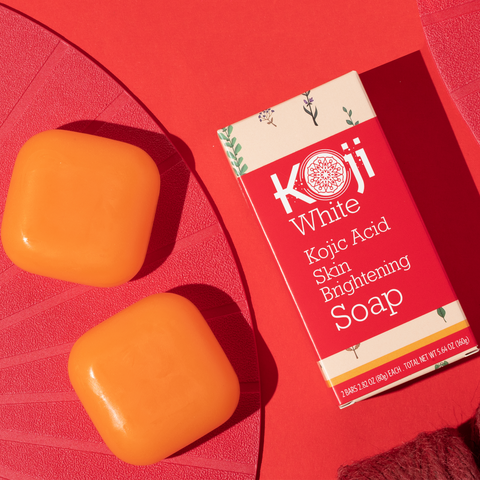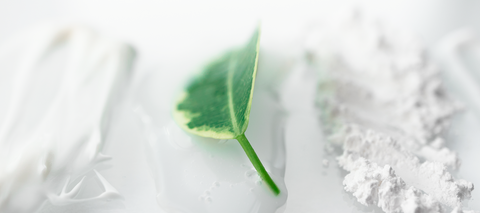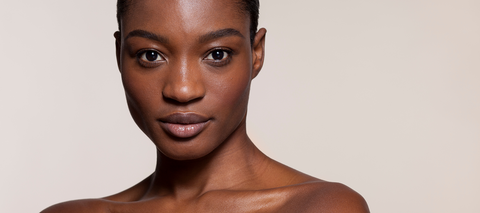
Kojic acid and hydroquinone are 2 of the most popular actives used in pigmentation lightening skincare.
Situation A) you find a skincare product which claims to lighten your skin.
Situation B) you find a skincare product with kojic acid which tells you it can do the same thing.
Situation C) you find a skincare product with hydroquinone which… claims to help lighten your skin (!)
Which do you choose?
Which is better for your skin?
In the battle of kojic acid vs. hydroquinone – which skin lightening and brightening active works better?
Keep reading to find out more.
Kojic Acid Vs. Hydroquinone: Safety
First stop – safety. How do kojic acid and hydroquinone compare? In the choice between these 2 very effective skin lightening and brightening actives, there’s one very important difference everyone deciding should know. This difference explains how kojic acid and hydroquinone will lighten your skin and why hydroquinone isn’t as safe as kojic acid.
Kojic acid and hydroquinone are very effective in helping fade age spots, acne scars and uneven skin tone because they help reduce the level of melanin pigment your skin makes. Both skincare actives can do this by engaging an enzyme your skin needs to make melanin. Technically your skin’s still able to make melanin however the ‘machine’ your skin has to do this is temporarily out of action.
Hydroquinone however also works to lighten skin in another way. Hydroquinone can alter your DNA causing the death of cells which make melanin. Scientists call this cytotoxicity. Side effects can include hypo-pigmentation (the opposite of hyper-pigmentation, meaning patchy areas of white skin), premature ageing and sensitivity.

Kojic Acid Vs. Hydroquinone: Which is better for skin?
When choosing an effective skincare product able to help lighten pigmentation or hyper-pigmentation it’s important to bear in mind which formula will be best for your skin – especially if you have sensitive skin. With over 40% of Americans claiming they have sensitive or very sensitive skin, this could very likely be you… especially if your skin frequently feels tight, tingly, itchy or stingy.
Be warned: Hydroquinone has a long history of use and is known to in some users to cause irritation, contact dermatitis, redness and burning. The stronger the concentration, the greater the risk.
Kojic Acid Vs. Hydroquinone: Which works best?
Perhaps the most important question – which will help lighten and brighten your pigmentation/hyper-pigmentation the best? Is kojic acid as effective as hydroquinone or is hydroquinone more effective than kojic acid? Which should you use? Truth is – both kojic acid and hydroquinone can be equally as effective. Trials of both skin brightening actives show 51% of users experience equal pigmentation correcting benefits from kojic acid and hydroquinone, whereas 28% show better benefits with kojic acid and 21% show better results with hydroquinone.
While it might seem strange for some people to experience better lightening benefits from different active ingredients, this is a realistic show of how very different your skin type is from your friends, parents and brothers/sisters/cousins/nieces.
Bottom line: Kojic acid vs. hydroquinone. A close match, narrowly won by kojic acid on efficacy but easily won by kojic acid for safety.









